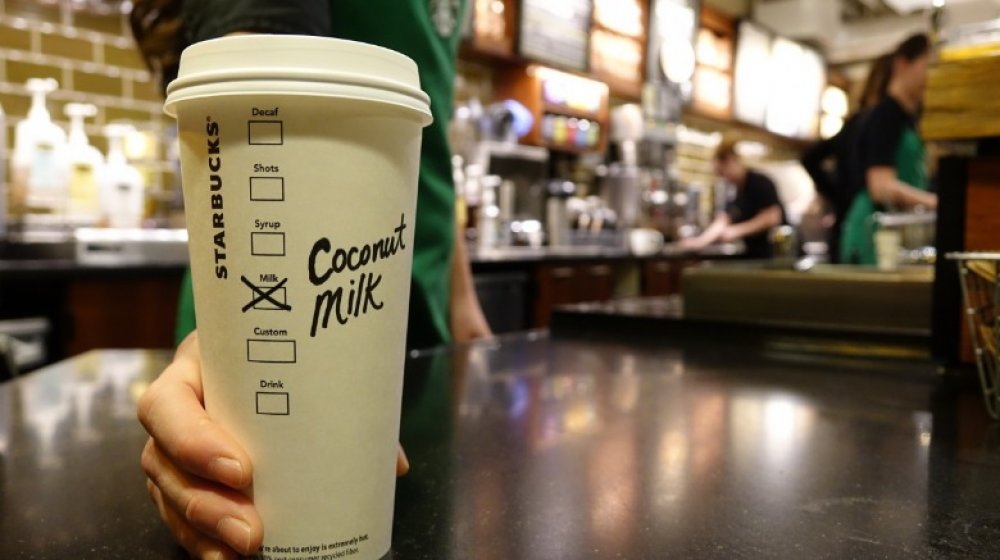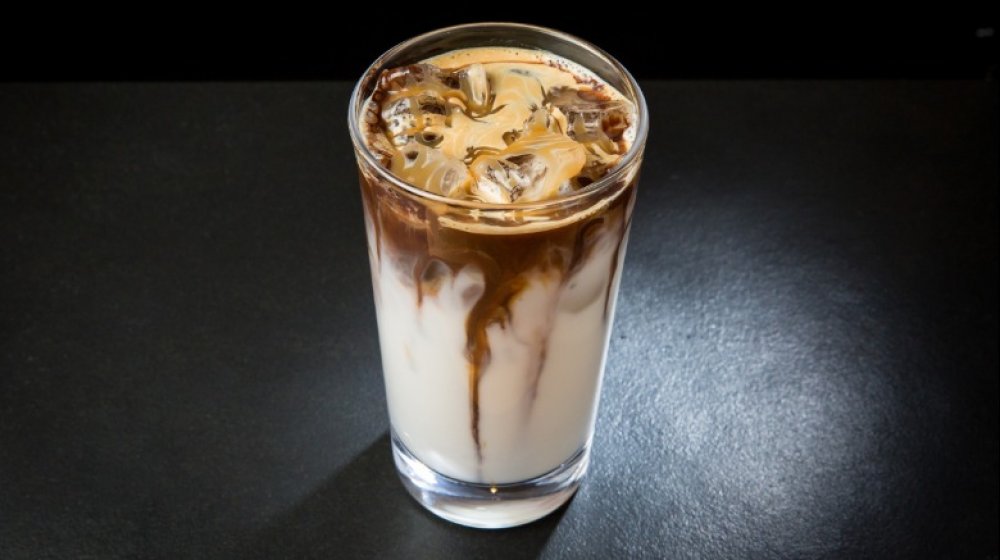The Truth About Starbucks' Coconut Milk
There are plenty of secret drinks that baristas make at Starbucks when no one's around, but you probably have your go-to sips that you order every time you visit. You probably also know you can customize your favorite beverages with different milk alternative options that the coffee shop chain offers — but as it turns out, one of these ingredients is not what it seems.
Coconut milk is a darling for those who stick to plant-based diets or are lactose-intolerant because it's a creamy substance that not only tastes great but also has a lot of health benefits, such as those in relation to weight loss, heart health, and the immune system (via Medical News Today). In fact, Starbucks fans raved when the chain introduced coconut milk at its stores. After all, out of more than 84,000 votes, getting a non-dairy alternative to dairy and soy was the second most-requested customer suggestion of all time (via The Cornucopia Institute).
What's in Starbucks' coconut milk?
Starbucks listened, but upon closer inspection, the chain's coconut milk is not actually coconut milk. Whereas real coconut milk is generally made from coconuts and water, the ingredient list for Starbucks' coconut milk contains food additives and emulsifiers, making it far from all-natural.
This is what's in Starbucks' coconut milk: water, coconut cream, coconut water concentrate, cane sugar, tricalcium phosphate, natural flavors, sea salt, carrageenan, gellan gum, corn dextrin, xanthan gum, guar gum, vitamin A palmitate, and vitamin D2.
These ingredients might seem harmless at first, but when you look into some of them, it does raise some red flags. For example, corn dextrin, which is maltodextrin derived from corn, is known to welcome the growth of some dangerous bacteria such as salmonella and E. coli in the gut if consumed in large amounts. Also, maltodextrin is a carbohydrate that's actually the same as table sugar on the glycemic index, so it could be detrimental to someone on a low-carb diet or people with diabetes or other conditions where blood sugar spikes negatively impact health (via Greatist).
Another reason why Starbucks' coconut milk is not the best option
Corn dextrin is not the only questionable ingredient in Starbucks' coconut milk. The option also contains carrageenan — an additive that thickens, emulsifies, and preserves foods and beverages. Some studies have shown that consuming carrageenan may lead to inflammation, bloating, irritable bowel syndrome, glucose tolerance, colon cancer, and food allergies (via Healthline).
Besides the additives, Starbucks' coconut milk is not a great choice for your drinks because it has so much added sugar. Based on a grande cup, which is 16 ounces, a serving of coconut milk from Starbucks contains 17 grams of sugar and 180 calories (via Spoon University). For reference, the daily recommended maximum intake of added sugar for men is 36 grams and 150 calories. In the case of women, it's 25 grams and 100 calories (via American Health Association).
If you want to skip out on milk at Starbucks and also want to avoid soy, then go for almond milk instead of coconut milk. It's the healthiest option at the coffee shop chain because it only contains 7 grams of sugar and 130 calories per serving.


